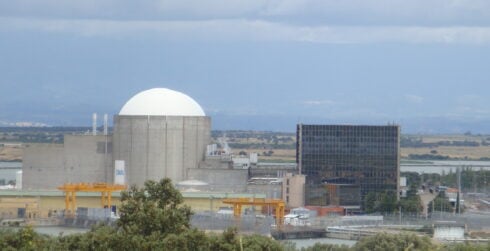Have you heard of Posidonia?
It’s something we all need to know about.
Posidonia oceanica is a type of seagrass that lives in the Mediterranean. Sometimes referred to as “Neptune grass”, it forms vast underwater meadows and acts as a green lung for the planet – but it’s in trouble.
On the coasts of Malaga, Granada and Almeria, its conservation status is now considered critical, as it is being steadily replaced by invasive Asian algae.
This was confirmed on Thursday by a group of scientists at the presentation of the Bosques Sumergidos (Submerged Forests) study, held in Malaga and led by the Mediterranean Classroom Foundation (FAMM).
The report concludes that the combined effects of invasive species, habitat deterioration due to human activity, and rising temperatures are pushing Posidonia to the brink. Without urgent action, the few remaining strongholds in this part of the Mediterranean could disappear – along with all the biodiversity they support.
In response, FAMM has announced a pilot project to replant Posidonia along the coast of Marbella.
Seagrass meadows like these are vital to marine ecosystems. They absorb carbon – which helps to mitigate the effects of climate change – and they provide shelter and spawning grounds for countless marine species.
But they are under increasing threat from human activities, including trawling, cod-netting, ship anchoring, and sand extraction. Climate change and the arrival of fast-spreading invasive algae are also having a devastating impact.
READ MORE:
- ‘Their days are numbered’: Scientist warns that Posidonia will completely disappear in Spain’s Balearic Islands
- Katy Perry’s new music video is being investigated in Spain for potential breach of environmental laws
- Snakes have ‘fully invaded’ Spain’s Ibiza: Environmentalists fear for local lizard species
The new study, carried out during 2024, examined the health of eight Posidonia meadows located along the coasts of Malaga, Granada and Almeria. It was made possible thanks to the work of more than 150 volunteer divers.
Around Cabo de Gata, the meadows were found to be in relatively good condition, with density and height measurements suggesting healthy ecosystems.
But in Malaga – particularly in Estepona and Nerja – the situation is far worse. There, the seagrass is in critical condition, heavily impacted by Rugulopteryx okamurae, an aggressive Asian algae that is choking the native Posidonia oceanica.
In Granada, the seagrass meadows are in slightly better shape, but R. okamurae is still spreading fast, with coverage now exceeding 30% in some areas.
“Understanding the current status of Posidonia oceanica in the Mediterranean is crucial to taking short- and medium-term conservation measures and ensuring the survival of these populations in the far western Mediterranean,” said Carmen Gómez-Acebo, Director of Sustainability at Europacific Partners Iberia.
“In light of the results, there is an urgent need to implement restoration plans in the most degraded meadows and to avoid actions that could worsen their condition.”
FAMM president and scientific director Juan Antonio López described Posidonia as a “submerged forest”, calling it both a symbol of environmental quality and the Mediterranean’s greatest natural bastion.
“A Mediterranean without Posidonia would be inconceivable,” he said. “Now these forests are disappearing – especially in the Alboran Sea, the westernmost part of the Mediterranean.
“Humans are the main cause, but we can also be the key to recovery. This project aims to highlight the value of Posidonia and promote both protection and restoration. There is still time.”
FAMM plans to continue data collection throughout 2025, with 11 dives already scheduled – three more than last year – including six in Malaga, three in Almeria and two in Granada.
The group will also focus on public awareness. Environmental workshops on Posidonia and biodiversity will be held in schools along the Malaga coast.
Gómez-Acebo noted that the work is part of Circular Seas, a programme backed by Coca-Cola since 2018 to help protect marine ecosystems in Spain and Portugal.
She said nearly 2,700 tonnes of waste have been collected over the last seven years, with the help of around 55,000 volunteers.
Click here to read more Environment News from The Olive Press.








